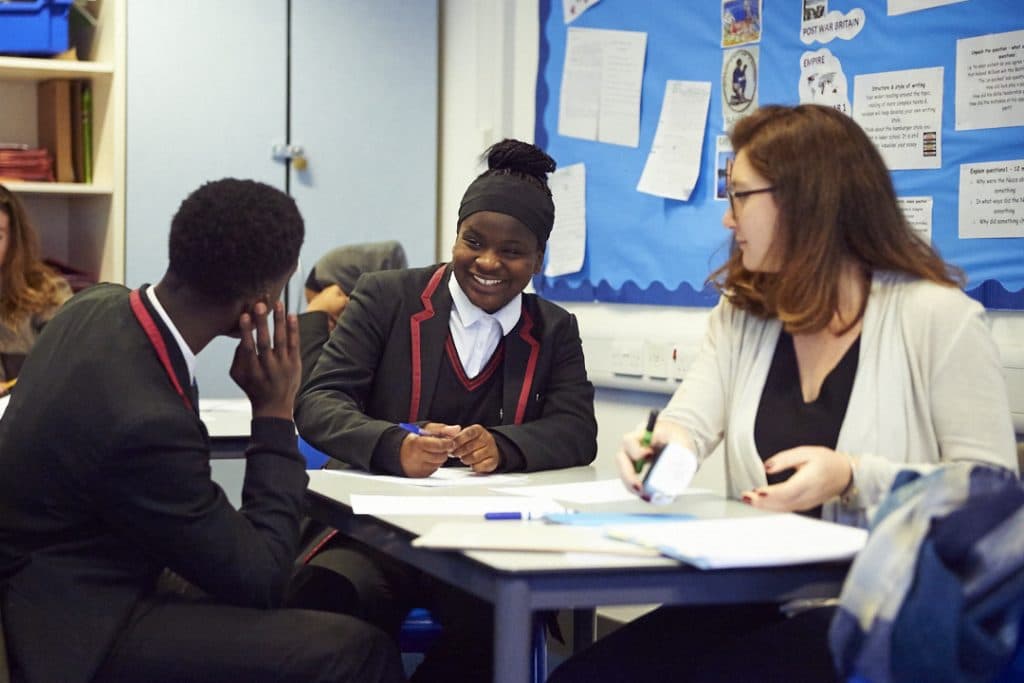Ability or attainment: what’s the difference and why does our language matter?
Speaking about children as high, low or middle ability is commonplace within schools and educational discourse. During my Action Tutoring work week, I regularly hear teachers and tutors use this language when discussing their pupils. They may say “X pupil is really low ability” or refer to groups of pupils as “the highs and the lows”, “the tops and the bottoms”, or even “the best and the worst”. I also often hear Action Tutoring pupils categorise or refer to themselves and their peers in this way.
Given that one primary pupil I spoke to was coincidentally sat in front of a very large Growth Mindset display, this greatly concerned me. However, knowing the current educational climate, which insists on the labelling, categorising and ranking of children, such comments no longer surprise me.
In the UK, children are grouped by their perceived ability from as young as three years old and this label often remains fixed throughout their school career. Disadvantaged pupils are disproportionately represented in low-ability groups and movement between groups is rare.
It is widely known that socio-economic disadvantage is the biggest predictor of academic attainment and that gaps in educational outcomes begin in the early years of education and widen throughout schooling. Labelling children as ‘low ability’ therefore ignores the ways that societal factors impact upon a child’s academic attainment.
At Action Tutoring, we recognise that disadvantaged young people aren’t any less able, but simply have less access to the tools and opportunities which enable them to reach their potential at school. One of the challenges of working with disadvantaged pupils is instilling in them the belief that their current attainment and test scores do not define their capabilities. With high expectations, continued effort, and the support provided by targeted tuition, we know that they can achieve.
When children are grouped by ability at school, it is most often based on prior attainment. However, equating attainment (assessment performance) with ‘ability’ (used in place of potential or intelligence) is neither accurate nor motivating for pupils and educators. Instead, it is this exact language which actively promotes the concept of fixed ability thinking, or the belief that intelligence is fixed, innate and unmalleable. With the growth in popularity of Carol Dweck’s Growth Mindset approach in schools across the country, it seems strange that, for the most part, preconceived notions of ability remain unchallenged in our day-to-day language.
When we label children as ‘low ability’, our expectations of what they can achieve are limited, we set ceilings on their potential and we danger damaging pupils’ self-esteem and long-term aspirations. In contrast, we know that children who are encouraged to have a growth mindset and view ability as malleable are more likely to embrace challenges, display increased confidence and go on to succeed.
By becoming more aware of our language, and by actively choosing to replace the word ‘ability’ with ‘attainment’, we are far more likely to question why a pupil is low attaining, rather than accept their current attainment as indicative of their potential or intelligence. There are a variety of reasons why a child may by low attaining. These may be cognitive, social, behavioural, or attitudinal, yet we need to dismantle the idea that low attainment automatically equals ‘low ability’.
Action Tutoring’s impact is clear; effective, targeted interventions can reduce the attainment gap and work towards breaking the cyclical nature of poverty and disadvantage. To do this, we must have high expectations for all pupils, acknowledge that ability is not fixed, and actively avoid labelling pupils. While changing our language won’t change mindsets over night, I believe it can force us to further challenge our preconceptions of what children and young people can achieve.
To volunteer as a tutor with Action Tutoring, please complete our application form below:





